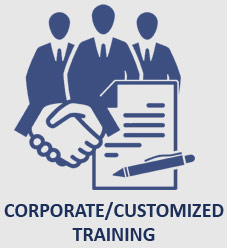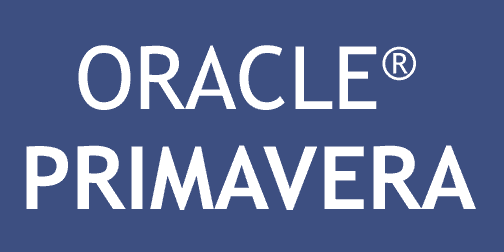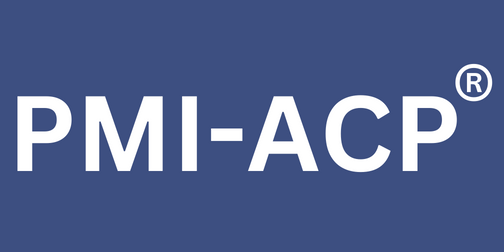
How to Gain Project Management Experience
Posted On November 21, 2024 - 16:34 PM
In the current competitive landscape of professional life project management abilities are crucial to be able to tackle complicated business issues. But how do you get expertise in project management when a lot of jobs require you to have the experience? This common "chicken-and-egg" dilemma can be overcome with a combination of strategically planned steps, deliberate learning, and practical training. No matter if you're a college student, an eager professional, or a mid-career professional looking to change careers to a new direction, this guide will take you through the steps necessary to help you build your experience in project management.
Understanding Project Management
Before you can begin exploring strategies to build experience it is crucial to comprehend what project management is all about. In essence, managing projects involves organizing, executing and closing projects, concerning deadlines and budgets. It also involves achieving goals. The most important areas to focus on are:
-
Scope Management: Definition of which elements the project should and shouldn't contain.
-
Time Management: Tasks are scheduled to ensure prompt delivery.
-
Cost Management: Effectively budgeting resources.
-
Risk management: by identifying and reducing the potential risks.
-
Communications with stakeholders: In keeping all the involved parties updated.
The need for professionals in project management covers a wide range of industries, including healthcare, IT, the manufacturing industry and even marketing. The first step in becoming an experienced professional is to know the skills and tools needed to be successful.
1. Start with Self-Initiated Projects
Even if there aren't formal project management experience duties on the job, it's possible that you could learn from self-initiated projects. The projects can range from the organizing of a charity event to directing an individual blog launch. The aim is to organize the tasks, delegate responsibility, and track results as you do in a professional context.
Steps to Get Started:
-
Set a goal or a challenge in your own or your community life.
-
Develop a detailed plan for the project with deliverables and timelines.
-
Note the process and its results to show your portfolio.
2. Volunteer for Cross-Functional Projects
Many organizations seek volunteers to participate in cross-departmental projects. Volunteering lets you take on projects that are not within your normal responsibilities and show your ability to handle tasks and people.
Where to Volunteer:
-
At Work: Help host team-building activities, redesign procedures within the company, or conduct training sessions.
-
Non-Profits: Many non-profits require assistance in managing fundraising events or outreach campaigns.
-
Community Groups: Join local organizations and online forum to search for potential projects.
Volunteering is not just about building experience, but it also expands your network, possibly leading to bigger jobs.
3. Leverage Online Courses and Certifications
If you're just starting online courses and certificates can be a great way to acquire the basics of knowledge and tools. They also boost your credibility when applying for roles that require project work.
Recommended Certifications:
-
Certified Associate in Project Management (CAPM(r)): Ideal for those who are new to the field.
-
Management Professional (PMP(r)): For those who have some experience.
-
Scrum Master Certification: It focuses on agile management of projects.
-
Google Project Management Certificate: The certificate is affordable and complete.
Hands-On Learning:
Many courses include scenarios and cases that allow you to apply your theory in realistic situations.
4. Find a Mentor
Mentorship is essential for gaining insight into the complexities of managing projects. A mentor will guide you through difficulties, offer feedback and find opportunities to learn.
How to Find a Mentor:
-
Contact senior colleagues with the experience of managing projects.
-
Join professional associations, such as that of the Project Management Institute (PMI).
-
Utilize platforms such as LinkedIn to connect with professionals who are experienced.
A mentor might also recommend you for roles in projects that will help you get your start.
5. Start Small at Work
If you're already employed begin small by tackling smaller projects that you can manage. Make sure you communicate your interest in managing projects to your boss and request opportunities to be a leader.
Examples of Small Projects:
-
Planning team retreats or meetings.
-
The management of the introduction of the new tools for software development.
-
Quality improvement initiatives that are leading within your department.
Actively looking for opportunities shows your determination and enthusiasm for learning the skills of managing projects.
6. Join Project Management Communities
Networking is an effective method to find opportunities and gain knowledge from others. Participating in project management groups exposes you to the latest trends in the industry tools, best practices, and methods.
Popular Communities:
-
Chapters of PMI Local chapters organize workshops and networking events.
-
LinkedIn Groups Join groups that focus on managing projects or your field.
-
Reddit Communities: Subreddits such as r/projectmanagement offer invaluable insights and suggestions.
Engaging in these communities will keep you motivated to stay focused on the goals in the workplace.
7. Learn to Use Project Management Tools
Learning to use the tools for managing projects can help you make your company stand out. Tools such as Microsoft Project, Jira, Trello and Asana are extensively used in all different industries.
How to Get Started:
-
Join now for free versions of well-known tools.
-
Use them to manage your personal as well as volunteer work.
-
Take online tutorials to master advanced functions.
The proficiency you have with these tools shows your ability to effectively manage projects.
8. Document Your Experiences
As you progress in your career and gain experience, it is essential to record your tasks and highlight your achievements and contributions. A properly documented portfolio can create an impression on employers in job interviews and reviews of performance.
What to Include:
-
The scope and objectives of the project.
-
The responsibilities and roles you took on.
-
Solutions to problems encountered and challenges solved.
-
The results can be quantifiable (e.g. time-bound deadlines, reducing costs).
A comprehensive portfolio demonstrates that you've applied active concepts of project management.
9. Seek Internship Opportunities
Internships are structured learning environments that allow you to gain practical experience under the supervision of project management professionals with years of experience. While a lot of internships are targeted at students, professionals who are in the middle of their careers are also able to find opportunities through upgrading programs.
Tips for Finding Internships:
-
Make use of platforms such as LinkedIn, Glassdoor, or Indeed.
-
Approach companies that offer organized learning programs.
-
Be open to learning and participate in interviews.
Internships usually end up in full-time positions which makes them a worthy investment.
10. Participate in Hackathons or Competitions
Hackathons and competitions for business cases typically require participants to handle projects under strict deadlines. These competitions help you build essential skills such as problem-solving leadership, teamwork, and teamwork.
Benefits:
-
Experience in a real-world setting.
-
Experimentation with innovative ideas and technology.
-
Opportunities to network through industry professionals.
Achieving or performing well at these types of events will boost your confidence and increase your resume.
11. Apply for Entry-Level Roles
As a project coordinator or team leader junior manager will provide you with structured experience under the supervision of the direction of senior project managers. These positions allow you to master processes, tools, and techniques in a professional work environment.
Common Responsibilities:
-
Helping with scheduling and planning.
-
Controlling communication between all different stakeholders.
-
The process of tracking progress on projects and the preparation of reports.
If you perform consistently these positions can result in promotions and even more responsibility.
12. Develop Soft Skills
While having a solid technical background is essential, however, soft skills such as leadership, communication and adaptability are equally essential. The more you can improve these skills, the more that you are able to effectively manage and lead teams.
Key Soft Skills for Project Managers:
-
Communication: communicates goals and information.
-
Problem-Solving: Solve unexpected problems effectively.
-
Time Management: Tasks can be prioritized and set deadlines.
-
Leadership: Encourage and lead your team to success.
Apply these techniques in daily interactions to be prepared for greater responsibility.
Conclusion
Learning to manage projects is a challenge that requires the power of self-initiative, education and working together. Begin by identifying opportunities within your personal and professional life, and continually expand your network and knowledge. If you're persistent and dedicated you'll be a project management experience and competent project manager, ready to face the challenges of managing teams to successful outcomes.
Start your journey today and remember that every step, however tiny, helps you get closer to becoming a proficient professional in project management.
Check Out This Blog : Project to Product and the Agile Product Operating Model


















